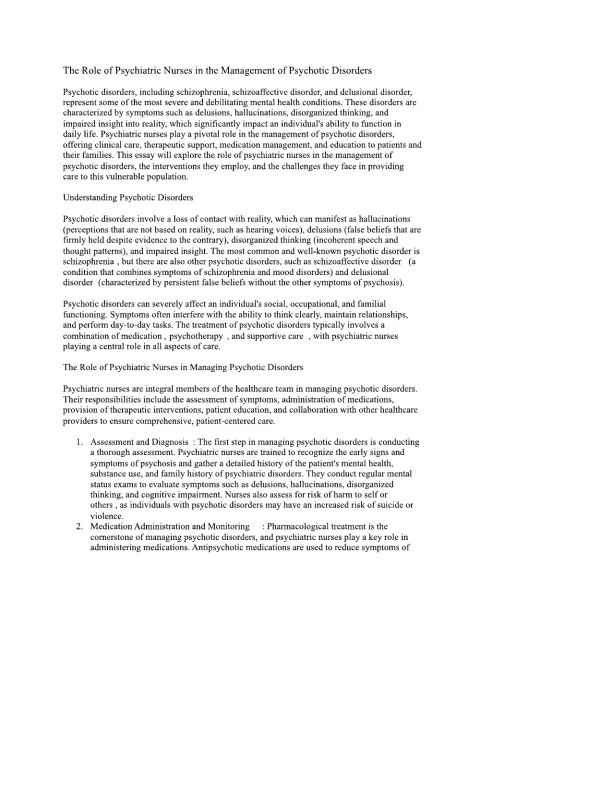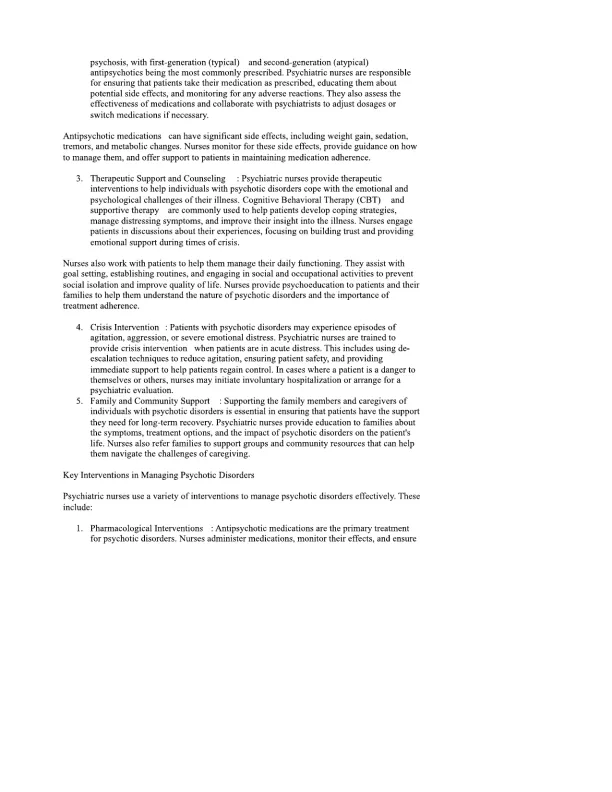Page 1

Loading page image...
Page 2

Loading page image...
A mental health care site focused on the role of psychiatric nurses in managing psychotic disorders, highlighting assessment, medication, therapeutic interventions, and support for individuals with schizophrenia and related conditions.
Loading page image...
Loading page image...
This document has 4 pages. Sign in to access the full document!